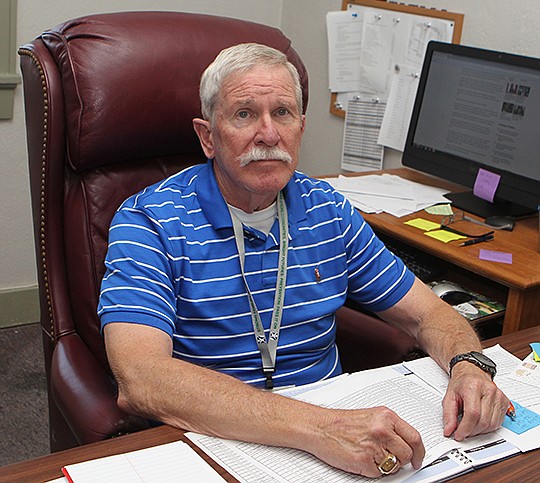Gov. Asa Hutchinson announced Monday that John Morgan, case management director for Ouachita Children's Center, has been named as a member of the new Youth Justice Reform Board.
The purpose of the reform board is to provide statewide oversight and accountability for the effectiveness of commitment reduction services to the state and to stakeholders in the juvenile justice system, a news release said.
"We are supposed to look at the juvenile justice system, and make recommendations with an eye on commitment reduction," Morgan said Monday.
"We're just going to be taking a good thorough look at better ways to do things in the juvenile justice system. The main emphasis is, and has been, commitment reduction; to not send kids to the Division of Youth Services, and find alternatives within the local community, if possible," he said.
Morgan said the board sunsets after four years.
Act 1010, which created the board, said that "when effective community-based services are not available as an alternative to incarceration, the results are the secure confinement of youths who pose little or no threat to public safety."
"When effective community-based alternatives are in place, use of confinement and commitments to the Division of Youth Services of the Department of Human Services can be reduced with no compromise of public safety," the act said.
The act said its purpose is to establish a mandate for the provision of services to reduce youth incarceration, and to provide oversight and accountability for the effectiveness of commitment reduction services to the state and to stakeholders in the juvenile justice system.
"Reduction in commitment services shall include services to address public safety, supervision, and rehabilitative needs of youths who may otherwise be detained, incarcerated, or committed to the Division of Youth Services. Reduction in commitment services may include, without limitation, electronic monitoring; family or individual therapy; day treatment services; residential or outpatient mental health counseling, sex offender counseling, or substance abuse counseling; parenting classes for youths or custodians; respite care; and emergency shelter services," it said.
The services may be acquired by agreement with comprehensive community-based providers capable of delivering the required continuum of services.
The Reform Board is comprised of a maximum of 21 members who serve a single four-year term and will meet at least quarterly. The board will cease operation by June 30, 2019.
The board is to make annual reports to the Division of Youth Services, the governor, and Legislature regarding system reform and improvements needed to implement the goals and purposes of the act, and by June 30, 2016, submit a plan to reduce over a two-year period the use of secure confinement for youths who do not present a serious risk to public safety.
The plan to reduce secure confinement is to include measurable objectives for developing and maintaining proven effective alternatives to secure confinement in communities statewide, as well as strategies to achieve those objectives throughout all parts of the juvenile justice system, the act said.
The board is also charged with establishing a method to calculate state costs saved from the avoidance of, and reductions in, youthful offender commitments by each judicial district.
Local on 08/04/2015